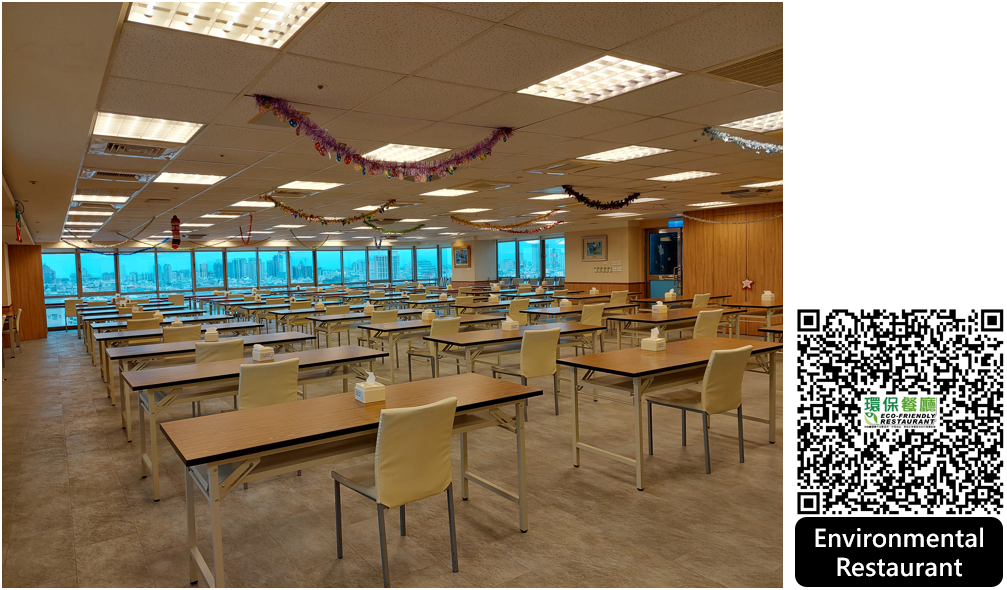Business Sustainability
Promotion of Paperless Office
Unlike the manufacturing industry, the financial service industry does not directly cause negative impacts on the environment. However, it uses a large amount of paper in the operating process or the internal exchange of documents. As the traditional papermaking process requires a lot of water, fuel, electricity, and forest resources, the promotion of paperless office and digitization (for achievements, please refer to section 5.2 Fintech and Innovation) is the top practical action of KTB for the protection of the ecological environment.
✓In 2023, the Business Process Management (BPM) system was implemented, facilitating the digitization of paper forms and significantly reducing paper usage. By the end of 2024, a total of 88 forms were transitioned online, with 17,918 forms processed through the system. Assuming an average of four sheets of paper per form, a total of 72,000 sheets of paper were saved, equivalent to a reduction of approximately 0.52 tCO2e.
✓KTB implemented paperless management for official documents and meeting materials, and promoted double-sided printing and paper recycling. In 2023, electronic document systems were adopted in all branch offices, with a total of 22,547 documents processed through the system, achieving a utilization rate of 98.12% across the entire Bank in 2024. If each document requires an average of 10 sheets of paper, a total of 225,000 sheets have been saved, approximately reducing 1.62 tCO2e.
KTB continues to promote the adoption of electronic bills by customers in 2024. A total of 786,059 electronic statements were sent for foreign currency and fund transactions, including cloud-based fund statements, marking a 22.2% increase compared to 2023. This initiative reduced paper usage by approximately 2.36 million sheets, equivalent to a reduction of 16.98 tCO2e.
✓Use the "Credit Investigation and Review System" to convert hard copies of credit cases to electronic versions for storage and transmission, reducing carbon footprint incurred during transportation and paper waste. A total of 4,603 credit cases were uploaded in 2024. Estimating the average paper usage per corporate and individual case, we expect the reduction was about 1.48 million sheets of paper, or 10.68 tCO2e.
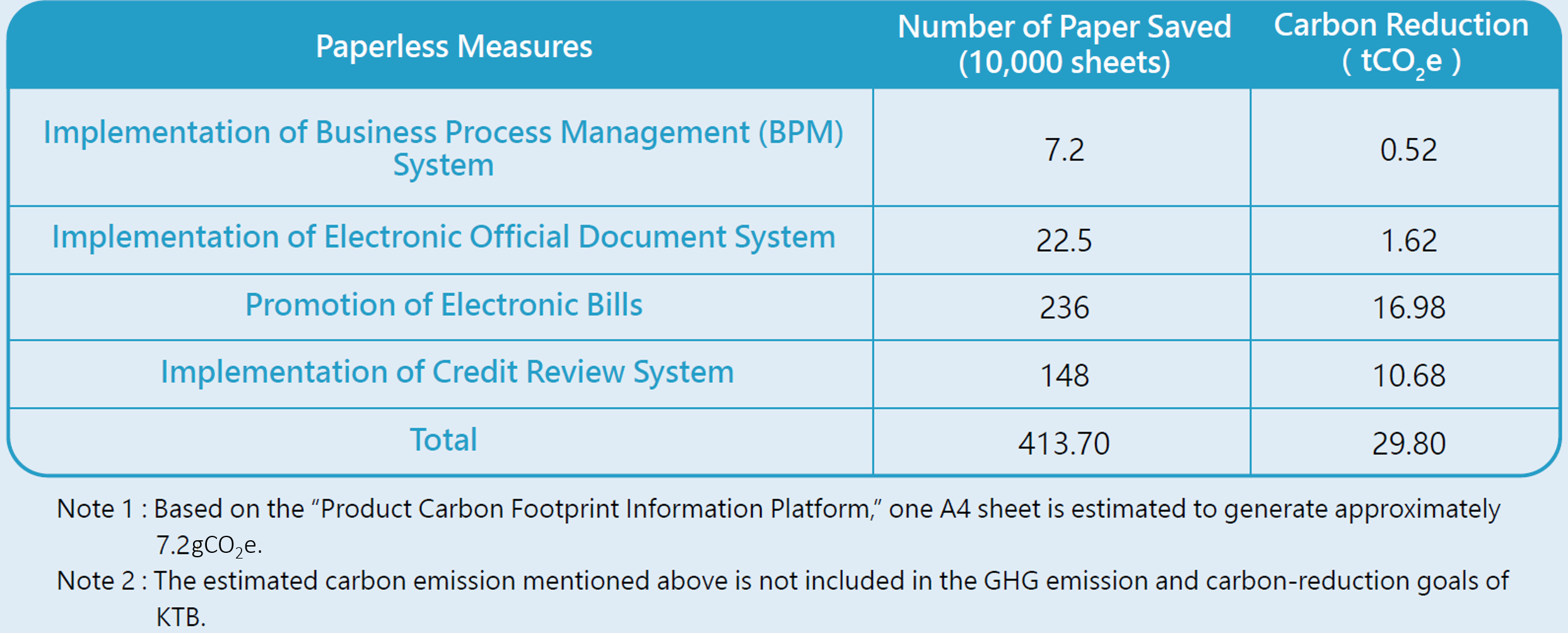
Innovative Carbon-reduction Actions
KTB has consistently responded to “Earth Day” for several consecutive years, staying committed to environmental protection. In 2024, the Company continued to organize the “Barter Trade” event, promoting the “3R Principles” to extend the lifecycle of products, reduce waste generation, and minimize unnecessary consumption. In addition, to encourage employee participation, we offered digital instant coupons and Green Points promoted by the Ministry of Environment as incentives. By providing digital-based rewards, we aimed to reduce the carbon emissions generated by the event.
Employee Cafeteria - Low-carbon “Food” Trend: As part of the Earth Day series of events, the employee cafeteria served an all-vegetarian menu on the day of the event and featured a “no-cook” dish for three consecutive days. These dishes were prepared without heating or stovetop cooking, using methods such as refrigeration, soaking, or pickling to highlight the natural flavors of ingredients. The initiative aimed to encourage employees to adopt healthier and more environmentally friendly eating habits in support of sustainable development. Each dish was carefully crafted using fresh, seasonal ingredients and emphasized reduced energy consumption, allowing employees to enjoy delicious meals while raising their environmental awareness.
Circular Treasure Festival: This event redefined the “11/11 Shopping Festival” as a secondhand charity market jointly organized by several companies. KTB hosted two booths during the event and encouraged employees to donate unused yet good-quality items from home for resale at the charity market. A total of 1,256 items were collected, and the proceeds from the sale—NT$134,000—were fully donated to the Dengjiabao Social Welfare Association, Wetlands Taiwan, and the Taiwan Fund for Children and Families. This event not only promoted the principles of a circular economy and waste reduction, but also raised awareness of social welfare and environmental protection. Through the passing on of each secondhand item, resources were given a second life, while providing tangible support to children in need, wetland conservation efforts, and underprivileged families.
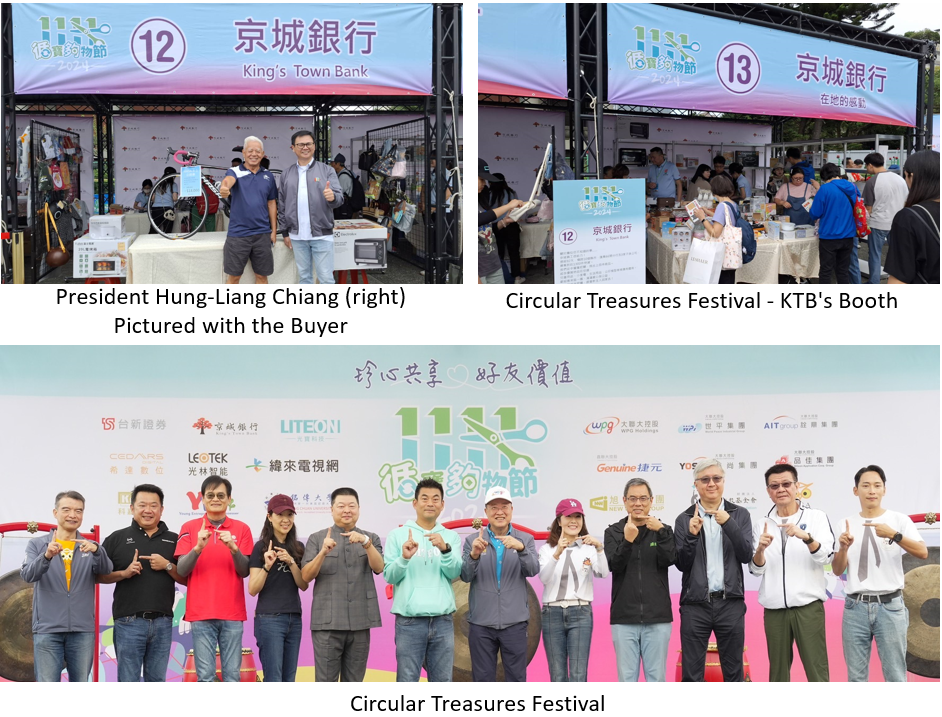
Leopard Cat Conservation Lecture
On the path toward sustainable development, we recognize that every action—whether it be educational outreach, community engagement, or environmental protection—has a profound impact on the future of our society and the environment. In reviewing last year's activities, we initiated a one-day agricultural event as a starting point, gradually expanding the focus of KTB's commitment to sustainable development from the social aspect to the environmental aspect. This year, our efforts centered on SDG 15: “Life on Land.” We held a lecture on leopard cat conservation, delving into the connection between sustainability and biodiversity preservation.
We visited the natural habitat of the leopard cat, a Class I protected species in Taiwan. Their habitats are typically located in mountainous areas, forest edges, or agricultural zones—areas essential for their hunting and breeding. We also learned that the population of the leopard cat is scarce and faces survival threats, including roadkill, conflicts with chicken coops, and encounters with dogs. In recent years, Taiwan has accelerated the development of ground-mounted solar power to increase renewable energy generation, resulting in the extensive use of agricultural land and low mountain forests for "solar farming," which further threatens the survival space of the leopard cat.
As a financial intermediary, KTB not only supports green finance but also strives to ensure that our financial operations and capital allocations consider ecological conservation and biodiversity. In addressing the conflict between leopard cat conservation and the development of solar energy, we recognize the need to carefully weigh the environmental impacts of renewable energy projects. We are committed to finding a balance between environmental protection and energy development, leading to a win-win outcome.
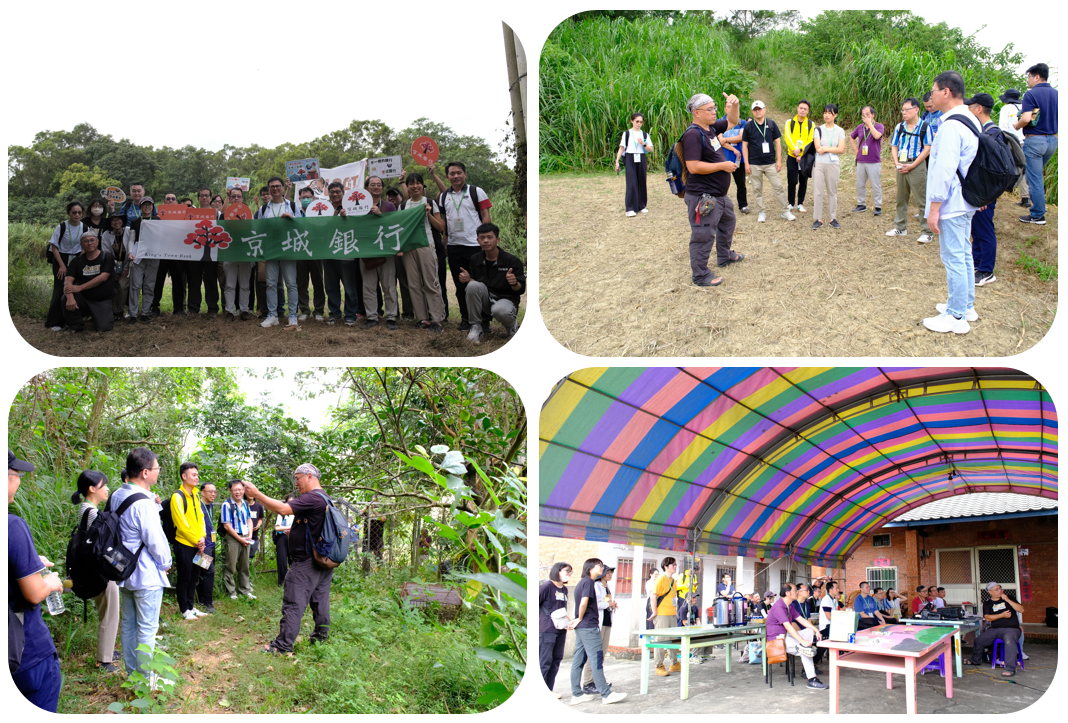
National Green Life and Green Procurement
Green Life is one of the key strategies for Taiwan's 2050 net zero transformation. It aims to change behaviors and consumption patterns in food, clothing, housing, transportation, nurturing, leisure, and shopping to reduce greenhouse gas emissions, thereby achieving a vision of environmental protection and economic win-win. KTB actively supports the Ministry of Environment's series of environmental sustainability initiatives by promoting the "National Green Life" campaign, advocating the "Green Office Declaration," and participating in "Green Procurement." As a committed "Green Partner," the Company joins in safeguarding our "Green Planet."
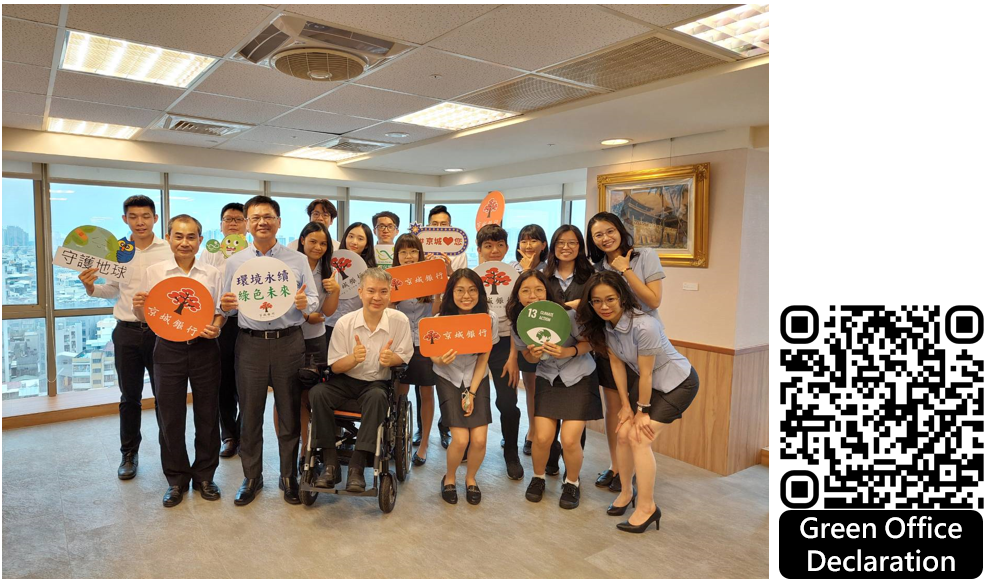
Green Procurement
KTB also actively participates in green procurement activities, maintaining a consistent procurement amount each year. As a result, KTB has been awarded the Green Performance Purchasing Companies Award from Tainan City for four consecutive years (2021~2024). KTB's procurement amount in 2024 was NT$11,007,110. In the future, KTB will continue to support low-carbon products, green building materials and sustainable product enterprises through green procurement to improve the efficiency of all resource use.
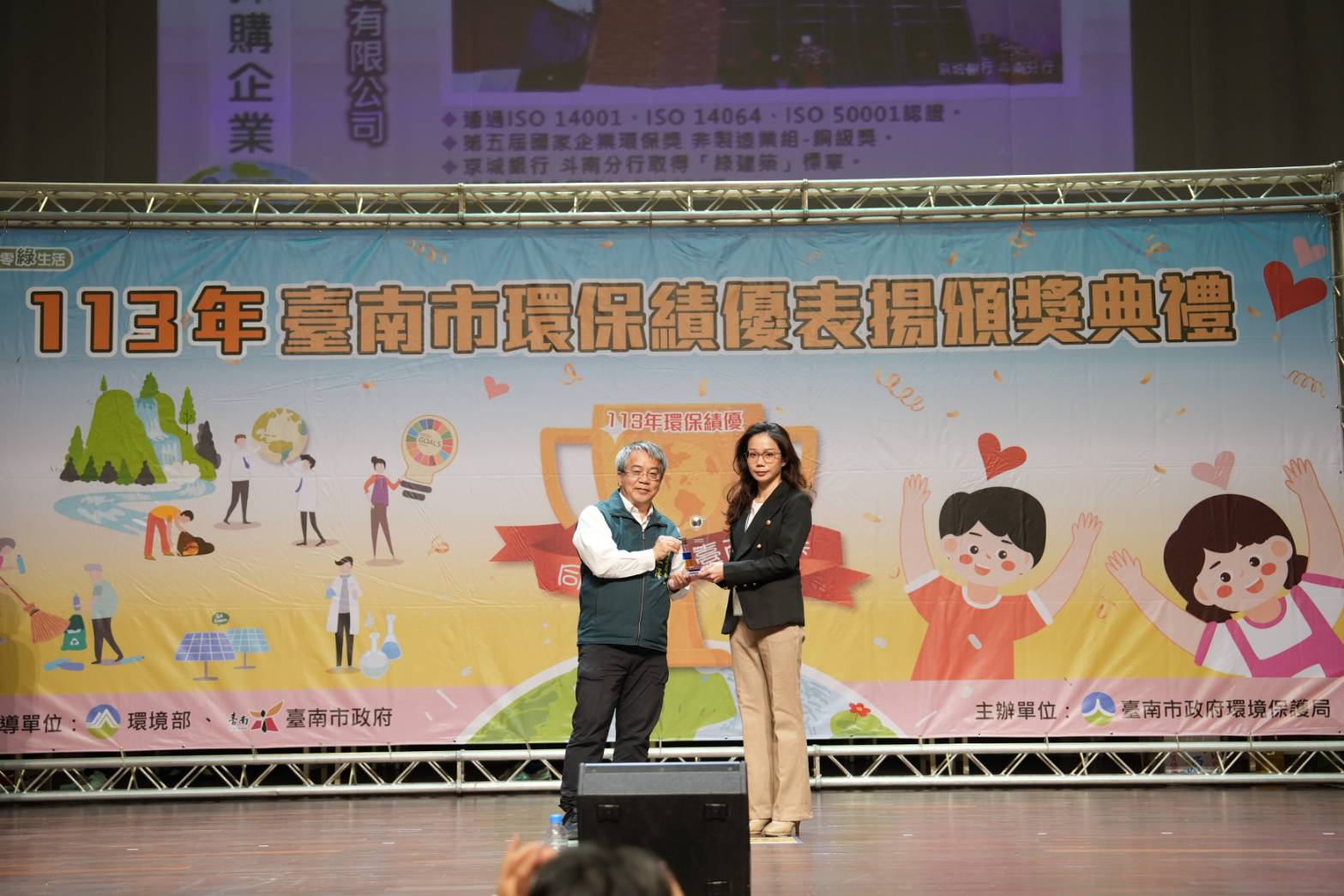
Third Solar-Powered Branch
KTB has installed solar power systems on the rooftops of its Headquarters building and Taibao branch. The third system, located at the Dounan Branch, features a rooftop solar photovoltaic installation with a capacity of 19.6 kW for self-use. It is expected to be connected to the grid and begin power generation in August 2025.
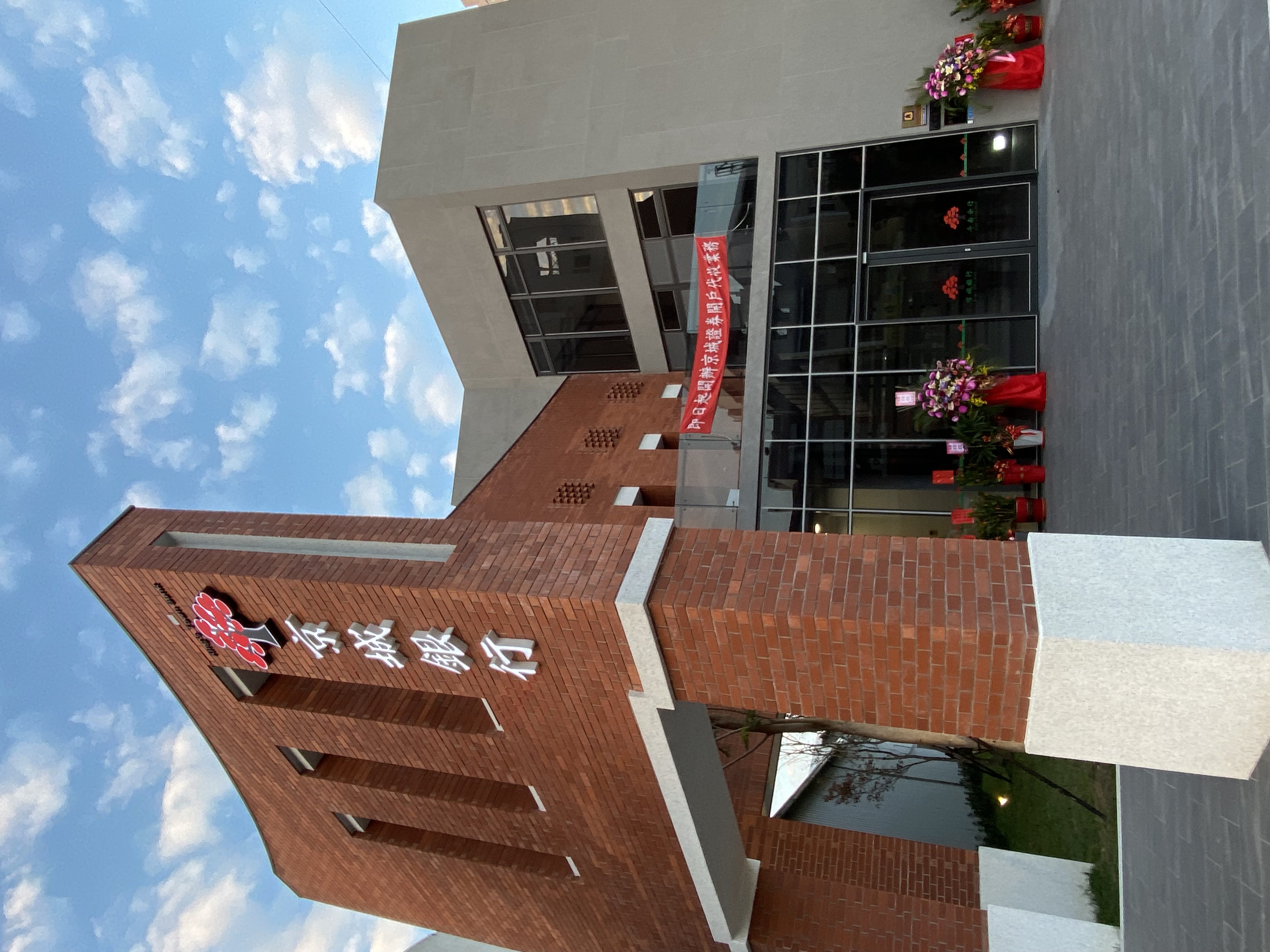
Environmental Restaurant
KTB has long had the awareness of waste reduction. Disposable tableware was never used in the employees' canteen in the Headquarters Building. All kinds of disposable utensils were not actively provided when the canteen was renovated in 2010. This policy has effectively reduced the use of 150,000 paper containers. Since 2022, it has been recognized as an "Environmental Restaurant," jointly supporting environmental sustainability initiatives.
